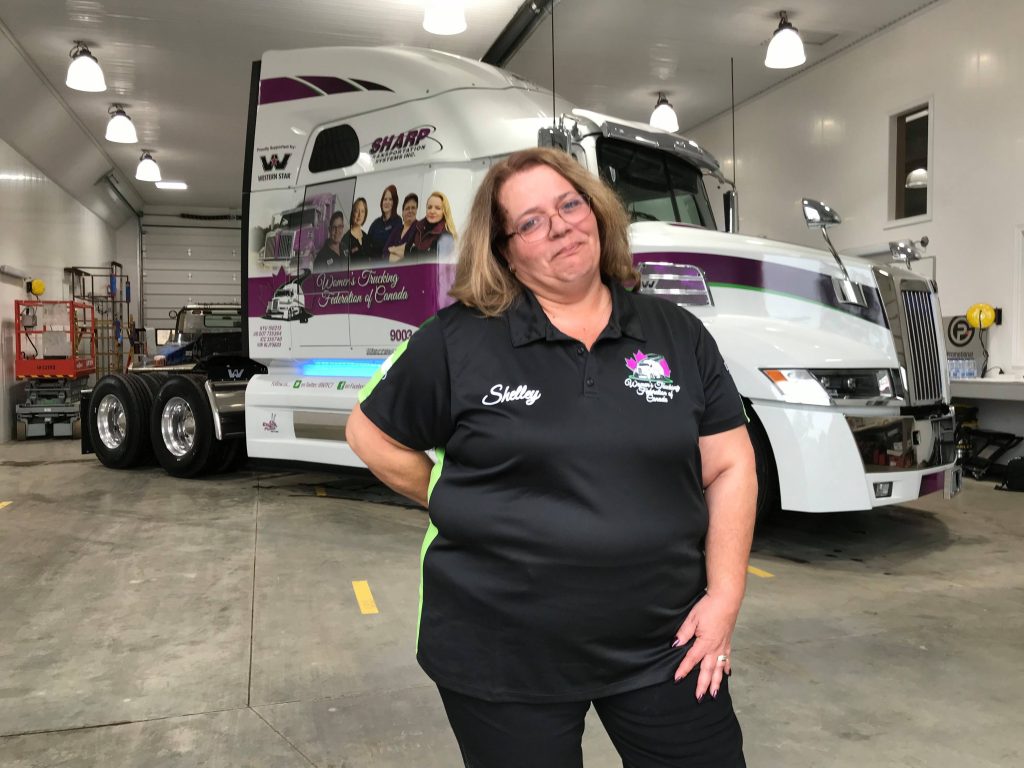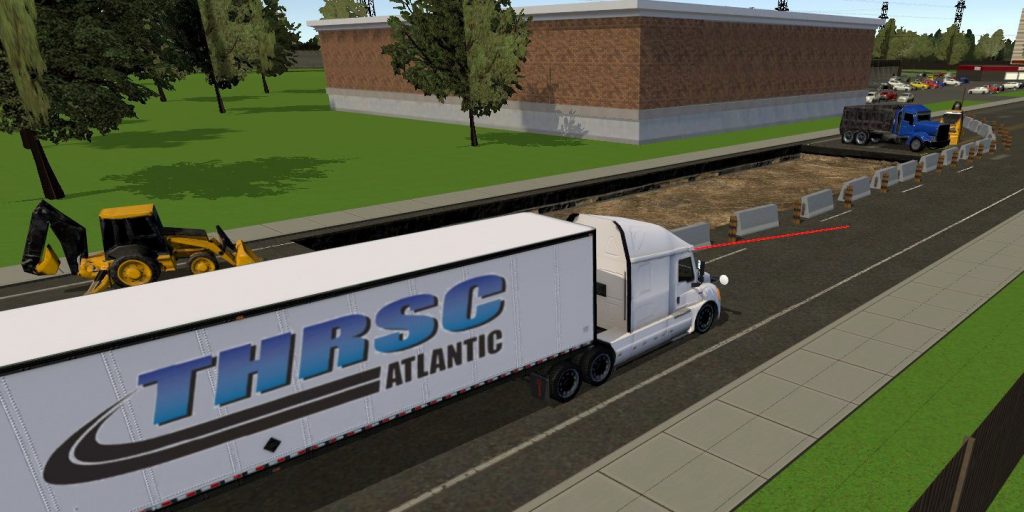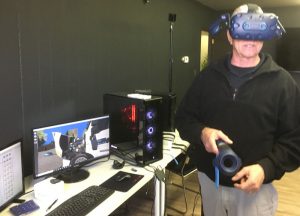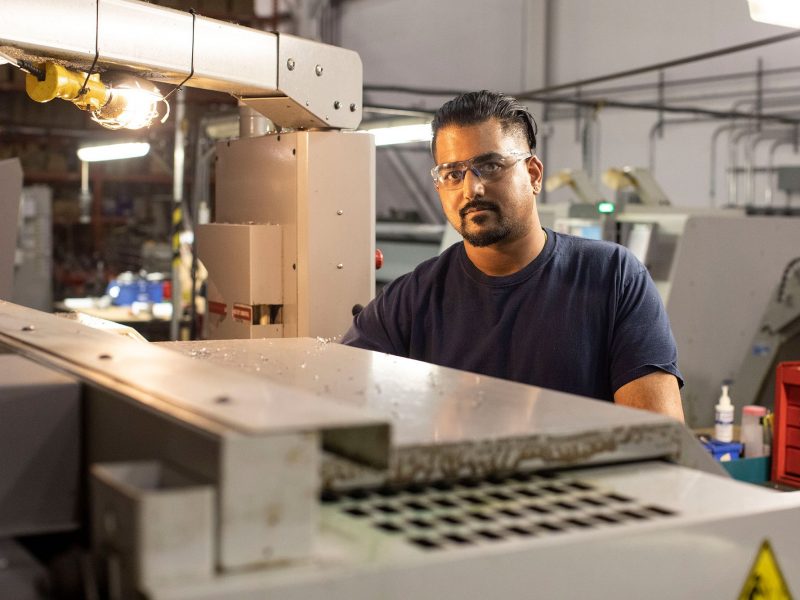Using VR, AI to help drivers keep pace with the fast-changing trucking industry
For Shelley Uvanile-Hesch, pursuing the life of a long-distance truck driver was as natural as it was for her father before her. Like him, she was drawn to the open roads, the elevated view of the natural world, the chance to see the four corners of North America, and the opportunity to learn from people she’d meet along the way.

“It’s a really good occupation – you have time to think and you don’t have a boss looking over your shoulder,” says the 51-year-old, 4’11, professional driver for Ontario-based Sharp Transportation.
Trucking was so pre-ordained for Uvanile-Hesch, she named her six-wheeler cab Destiny Star, “because I believe people need to follow their destiny.”
But while the demand for transportation services grew in 2017, and is predicted to grow again over the next several years, Canada’s multi-billion-dollar trucking industry does not hold the same lure for Canadian workers it once did.
Experienced drivers, now in mid-career, are sometimes daunted by modern technologies emerging in their field. Ottawa has signalled that autonomous vehicles are in our future, and is preparing provinces and the sector for that change.
We’re on the cusp of changing technology and we need to be innovative in how we approach these changesKelly Henderson, Executive Director of the Trucking Human Resource Sector Council Atlantic.
This, in turn, makes it even more crucial that Canada attracts and trains a steady flow of potential new entrants to fill an estimated 24,000 available jobs, and creates a need for professional drivers to operate automated vehicles.
“We’re on the cusp of changing technology and we need to be innovative in how we approach these changes,” says Kelly Henderson, Executive Director of the Trucking Human Resource Sector Council Atlantic.
A new program funded by the Future Skills Centre, which is dedicated to helping Canadians gain the skills they need in the changing workplace, is helping to future-proof the trucking industry by future-proofing drivers.
Through the Future Skills Centre, the Council is developing a new two-year pilot program focused on enhancing the skills of professional drivers to help them adjust to the changing technology.
Building the Skills of the Trucking Industry
“Using exercises within a virtual reality simulator, professional drivers will be trained at a pace that’s right for them,” Henderson explains.
The training will be introduced in Atlantic Canada and in Ontario in 2020, with about 150 candidates benefiting. But Henderson says if it’s successful the program could be scaled across Canada.
“It enhances skills training and, at the end of the day, that’s the best way to improve driver confidence and enhance safety,” Henderson says.
The training, in which driving is simulated while the trainee sits in a chair gripping a steering wheel and wearing a headset, uses AI ‘iris tracking’ to follow the trainee’s eyes to detect how often mirror checks are conducted, for example. If these safety checks could be improved upon, the driver is then provided the training they need.
It’s an innovative teaching tool and the first of its kind designed specifically for the trucking industry.


“You feel like you’re sitting in a truck,” says Uvanile-Hesch. “It constructs distractive scenes to see if you’re monitoring your blind spots.”
Pedro Barata, Executive Director of the Future Skills Centre, says meeting the challenge of attracting new workers to careers in trucking and equipping them with lasting skills for a changing industry, is why the Future Skills Centre exists.
“This is a dynamic initiative that starts with the very real demands in the industry today, while also anticipating future needs around digital literacy, life-long learning, and confidence and resilience through rapid change,” says Barata.
“We want to work with industry leaders, employers and the skills development system to anticipate future skills needs and help ensure that every Canadian has the tools and supports they need to navigate a fast-changing economy.”
While professional drivers are required to log a set number of hours of driving in order to be certified, the Trucking Council’s virtual reality simulator has the potential to improve skills in less time and build confidence in an off-road setting.
The older generation is leery of the technology. This training is about changing the mindset of drivers that technology will help them, it’s not going to replace them.Shelley Uvanile-Hesch
“For young people and experienced drivers, it will provide an opportunity to sit on a system and improve their skills – find out where they’re going wrong and apply it in the real world. It’s going to improve safety,” says Uvanile-Hesch.
Modern trucks have automated lane departure devices, which emit a foghorn sound if a driver crosses a dotted or solid line. They also come equipped with an automated braking and cruise control device, which senses cars ahead slowing down and applies the truck’s brakes in order to maintain a safe distance.
The VR simulator will help drivers train safely while getting used to the technology.
“The older generation is leery of the technology,” says Uvanile-Hesch. “This training is about changing the mindset of drivers that technology will help them, it’s not going to replace them.”




